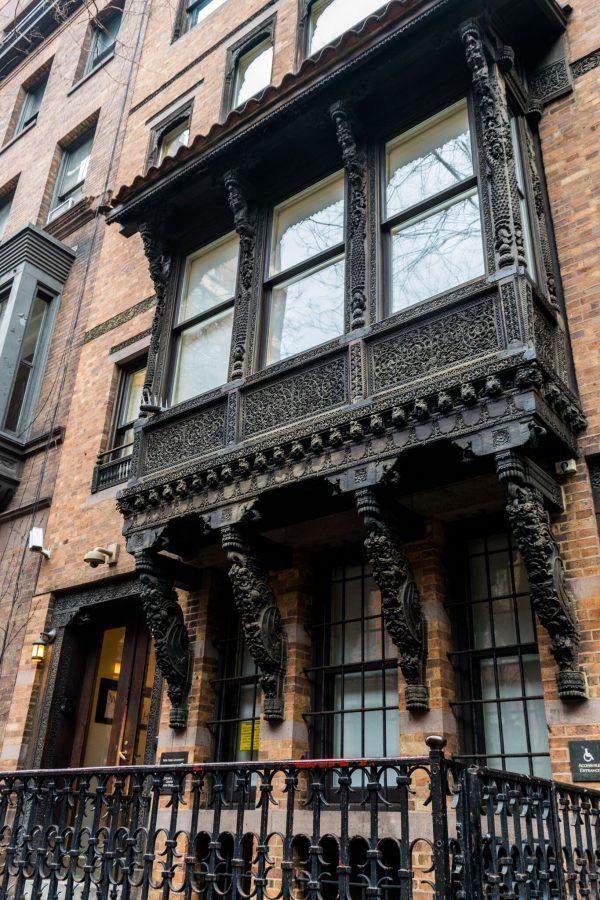Jewish students called for religious holidays off, greater understanding of differing identities within the Jewish community and better kosher food accommodations at a town hall hosted by members of the Student Government Assembly on Friday.
In the past, Zionist and anti-Zionist Jewish groups on campus have clashed over the latters’ support for a protest of Israel’s treatment of Palestinians — the Boycott, Divestment and Sanctions movement. Zionist groups in particular have expressed they feel antagonized by protests of Israel, calling BDS anti-Semitic.
Gallatin sophomore and Vice President of Hillel at NYU Avital Krifcher, who attended the event, said groups for Jewish students should not be involved in these political discussions.
“Clubs on campus that identify as Jewish have a responsibility to separate politics and religion,” Krifcher said. “It can be very detrimental to people who identify as Jewish or non-Jewish, or Zionist or anti-Zionist, to identify one and define it as the other.”
Krifcher mentioned an April 2018 celebration of Israeli Independence Day held by Zionist student groups, protested by pro-Palestine groups Students for Justice in Palestine and Jewish Voices for Peace. She said students may incorrectly perceive Jewish groups there as representative of all Jewish students at NYU.
“When it came to the ‘rave in the park’ last year, it is important to both distinguish the clubs organizing them and their affiliation with Jewish students,” Krifcher said.
CAS senior Michael Bearman, Senator at-Large for Marginalized Jewish Students, represents Jewish students who identify as queer, of color and/or non- and anti-Zionist and said he’s felt uncomfortable in Jewish institutional spaces.
“One of the big things I am working on now is making a space for non- and anti-Zionist Jews in the Bronfman Center, to make the center more accessible for marginalized Jews,” Bearman said. “The only [Jewish] club not explicitly Zionist is Jewish Voice for Peace and the club has not really had a close relationship with the Bronfman Center and so I am trying to make those ties a little stronger this year.”
Stern senior and Senator at-Large for Jewish Students Revital Chavel co-hosted the town hall with Bearman. Chavel spoke about her push for NYU not to hold classes on Jewish religious holidays such as Yom Kippur and Rosh Hashanah. Some holidays involve fasting, restrictions on electricity and writing and attendance of synagogue for prayer for a large portion of the day.
Chavel wrote a letter — backed by SGA — to NYU last semester urging it to do so following a petition in 2017 with the same goal. Currently, NYU’s policy does not allow students to be penalized for missing a class due to a religious holiday, although it does not cancel classes for them either.
“The effect [of the holidays] is that students who observe these laws end up having a lot of days where they can’t be working, they can’t go to class and they can’t take notes,” Chavel said. “[The letter] will allow the professor to know that this is happening and not so they assume off the back of their head, ‘Oh, this student is just taking a vacation day.’”
Regarding religious inclusivity on campus, Jewish students at the town hall expressed that, besides holidays, food can be an area of difficulty for those who keep kosher.
“The Kosher Eatery on campus is one of the few places Jewish people can eat,” said Stern sophomore Eitan Ginsburg, who is also president of a club supporting Orthodox Jewish life on campus, Shalhevet. “Creating more inclusivity on campus is important, even with regard to food.”
Attendees said having a forum to express complaints left them feeling positive about NYU’s trajectory in addressing issues facing specific communities at the university. Aside from Friday’s town hall, there has been a a Latine Town Hall, Financial Aid Town Hall and one for undocumented, first-generation and low-income students this semester.
“I thought [the Town Hall] was really fantastic,” said Krifcher. “I think more events like this would be really beneficial not only for Jewish students but for all students on campus so that everyone feels more unified.”
Krifcher hopes events like the town halls spur more dialogue among not only Jewish students but those of other faiths as well.
“As a marginalized group we face a lot of the same challenges like many other religious groups on campus,” Krifcher said. “It would be fantastic for religious students to get together on campus and deepen their faiths through conversation and dialogue. We all face a lot of the same challenges when it comes to misconceptions and stereotypes [in regard to] a specific faith, and this is a great way to start bridging those gaps.”
A version of this article appeared in the Monday, November 25, 2019, print edition. Email Roshni Raj at [email protected].


























































































































































